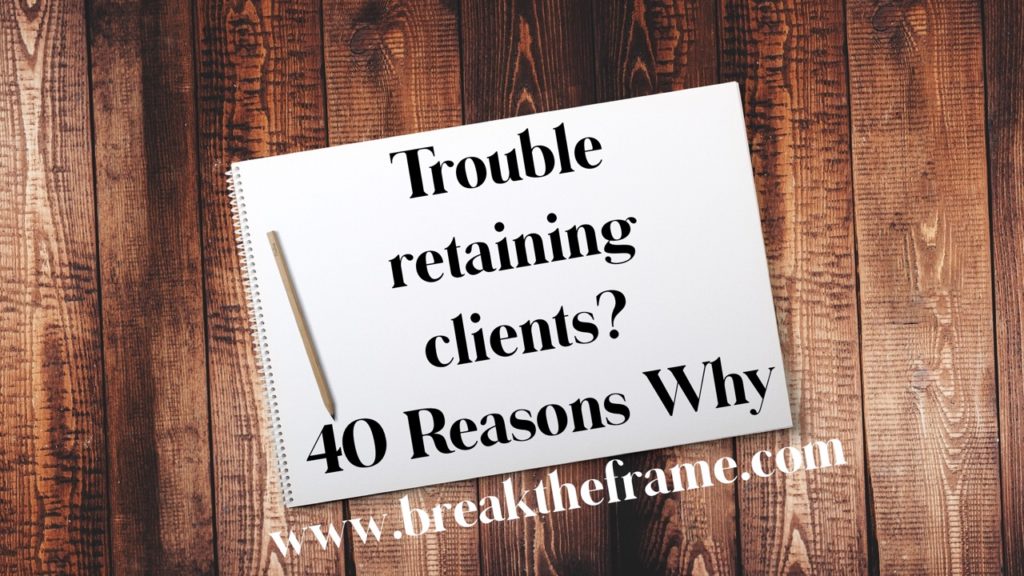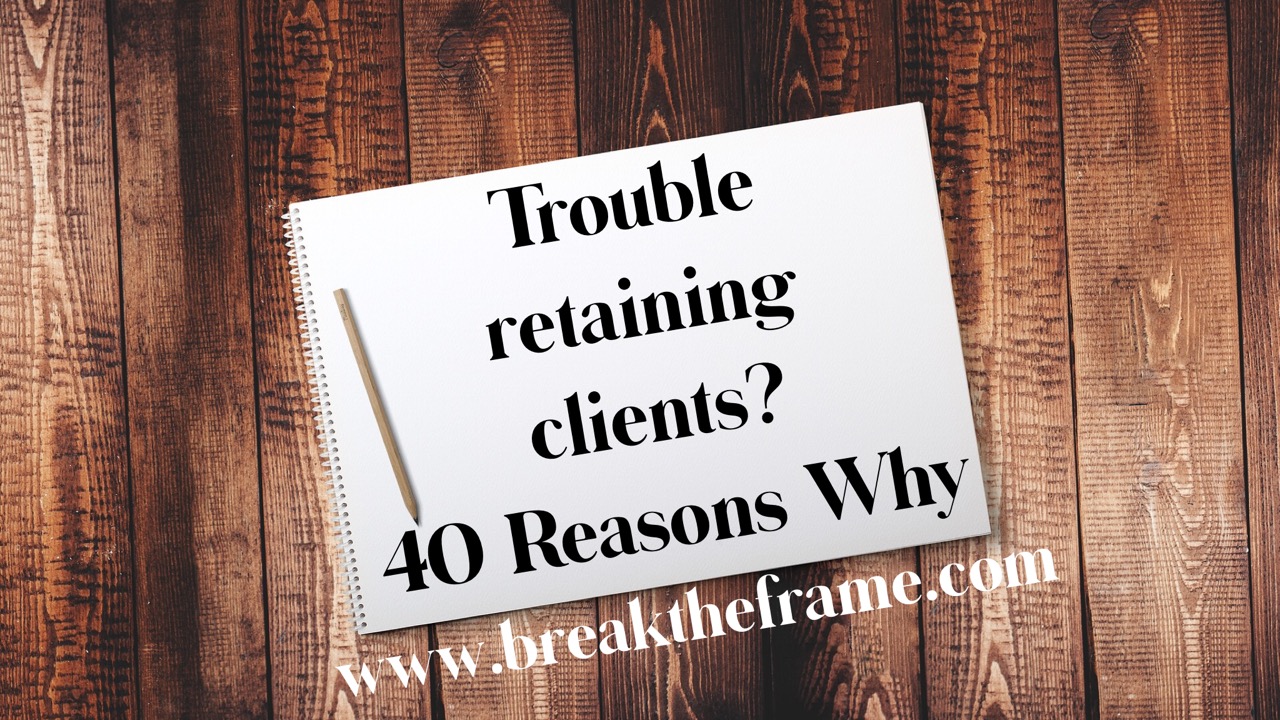
Most people don’t hire an expert to solve something they could solve on their own by reading a book, watching a TED Talk, or good old Google.
Think of a challenge you’re having. Maybe it’s at work or with your partner or kids. By the time you get to the expert, there’s little you understand more than your problem. You research it, ruminate on it, eat, sleep and breathe it. You reach out to an expert because you want to move forward, and for the pain of the problem to stop. You also want something else that’s out of reach beyond the problem.
Then you call the expert.
And it doesn’t work.
Whether you call another expert or keep searching on your own, chances are, the expert is left wondering why they didn’t retain you as a client. They are the expert, gosh darn it. They solve problems like yours every day.
You’re the Expert. Why Aren’t You Retaining Clients?
Maybe you’re a small business owner, coach, consultant, or leader in a large organization. In all those scenarios, you get the call – someone needs your help. You want to help and know that you can fix what’s broken. You go in and present your solution, and they say, “Great, let’s do it. There’s nothing we want more than to get this fixed.”
Then, you hear that they’re going in another direction. Maybe they tell you it’s budget, honestly; until you hear about someone else they hired, you believe them. Could be that the follow-on work you were hoping for just disappears. All you know for sure is that your work together is done.
Fine, you think. Their loss.
Before you write them off as an outlier, idiot or jerk, maybe it’s not bad luck that you’re having trouble retaining clients, but something else has to change.
If you aren’t in an external client-facing role, you may still leave a trail of poor working relationships in your wake. Instead of deciding that you work with the world’s most dysfunctional people, it’s imperative to take a moment and look at your own thoughts and behaviors that may be contributing to the situation.
Take a look through 40 reasons why you’re having trouble retaining clients. I doubt all 40 relate to you, but even if a few do, and that aha leads to change, it’s a positive outcome for you and for all of your future happy and satisfied clients.
It’s not enough to be the expert with the answers. Which one of these reasons hit home the most with you? If it’s none of them or tons of them, take a few minutes or days to ponder. You’ll know where you need to start.


40! Count ’em! One reason, especially if it’s the one, would be sufficient and you provide an entire catalog. How generous! Seriously, your understanding of human dynamics makes the case and if there’s anyone out there who doesn’t find at least one or more of these reasons to be valid, that may number 41. Regardless, thanks for this. My favorite may be Change. It’s a choice.
If we don’t want to change, think it isn’t necessary or it’s the client who has to change, not me, we might as well whistle into the wind.
Cheers, my friend!
Change is a choice! Always! However, some people become so entrenched and defined by their view that they are the expert they dismiss the need to change (everyone else is the problem). We see it in consultants, leaders, and team members. My hope is that when people see a reason, thought or behavior in this slide presentation that hits home, the possibility to choose change will emerge when before they were more likely to write it off.
Thanks, Gary!
Alli
Excellent slide presentation of 40 incredibly insightful reasons we can lose customers! For me, being a superhero is the one that resonates. As a very optimistic and positive coach, I need to sometimes be more realistic.
Thanks Alli and will share!
That’s a tough one. You are driven to serve your clients and help them serve their problems! It’s a wonderful quality to have in the people we trust with our most intimate and vulnerable challenges. The problem comes when we believe we can do it all and are the best for all. Even creating a reminder to be more realistic while remaining positive can lead to meaningful results. “This won’t be easy but you’ve got this.” vs. “You’ve got this.” Acknowledging what’s present and not only what’s possible.
One thing I know, your clients are lucky to work with you for many reasons, Terri.
Alli